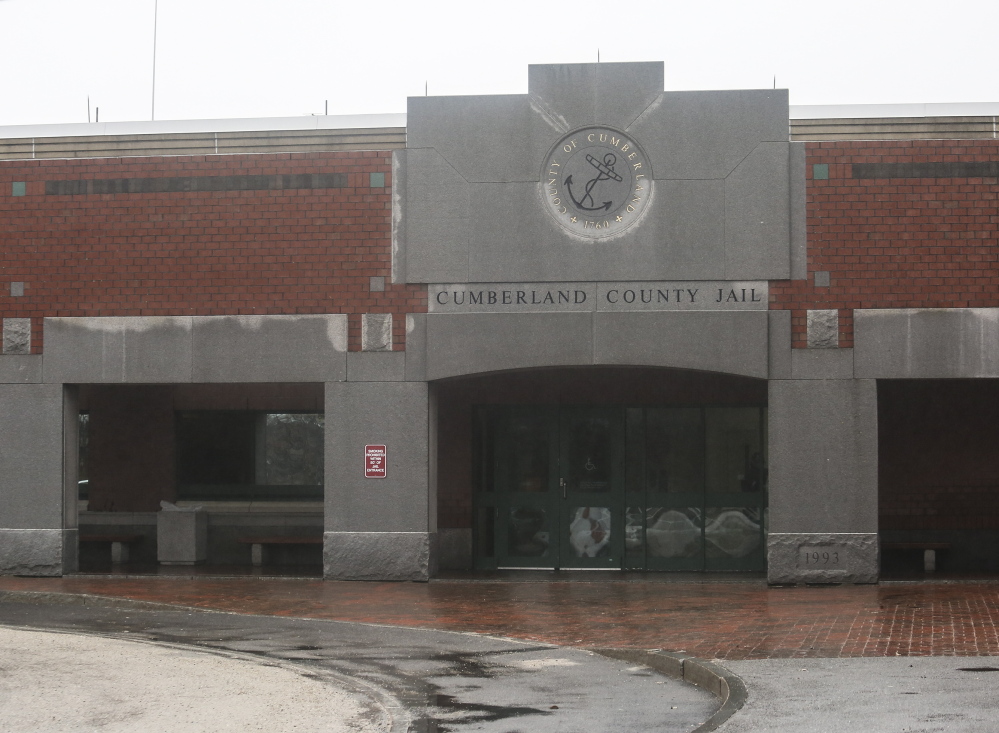Cumberland County Sheriff Kevin Joyce has announced he will be turning away inmates from other counties later this month because inaction by the governor and legislators threatens to leave him without enough money to pay employees and other bills.
Joyce sent a letter Tuesday to other sheriffs alerting them that starting Feb. 23, Cumberland County Jail would no longer take inmates from other counties, and the 76 inmates it currently houses from elsewhere in the state would be returned to their sending counties.
“If I don’t act quickly, we’re just going to run out of money,” said Joyce.
Joyce said the jail is facing a $600,000 shortfall this year, an amount it has asked the Legislature to fund in a supplemental appropriation.
“If we don’t get our $600,000, we’re going to be standing alone as to how we make ends meet. There’s no option but to start conserving now,” he said.
The shortfall, which is $2.5 million for the jail system statewide, is complicated by the fact that the Board of Corrections no longer can function. The board was set up to allocate funding to jails in the most efficient way possible, but it no longer can meet because Gov. Paul LePage has refused to appoint members to the board and it lacks the necessary quorum of three people needed to hold a meeting and make decisions.
Sheriffs in different counties have been offering tours to legislators and meeting with the legislative committees that are likely to weigh in on the issue.
“I think people on the Appropriations Committee understand the issue and the need for the money, ” Joyce said. “But they brought up the fact that even if they appropriate the money to keep pods open, because the board of corrections is not a complete board, there’s no way to distribute money.”
Joyce said he believe the Criminal Justice Committee understands the importance of acting quickly, but so far no solution has materialized for this year.
“I think we’ve been patient,” he said. “The longer it goes, the harder it’s going to be.”
Joyce expects legislators will come up with a solution for fiscal year 2016, but said the short-term crisis needs to be dealt with now.
Joyce said that to save enough money to meet his budgeted amount, he needs to cut the number of inmates being housed at the jail by 105.
He will be closing the jail’s community corrections program, through which lower-risk inmates near the end of their sentences work in the community as part of their transition back to society. The corrections officers who staff that program will be reassigned to the jail to fill vacancies, currently filled with overtime spending.
The jail also will close an inmate housing pod, which houses 84 inmates, and reassign the six positions now assigned to supervising that pod.
To make the numbers work, Joyce will transition about 29 inmates into community confinement in conjunction with Maine Pretrial Services. Eligible inmates would be near the end of their sentence and have not been convicted of violent crimes, Joyce said. The arrangement will be similar to probation.
Cumberland County’s board of commissioners sought a legal opinion about whether the county would be able to spend money to assist the jail with its cash crunch, Joyce said. However, the law that created a unified state-county jail system prohibits counties from spending independently on the jails, a prohibition meant to provide property tax relief.
Joyce said there will be no layoffs at the jail, but there may not be jobs for some of the people currently attending the Maine Criminal Justice Academy.
The bulk of the county’s shortfall is the result of fewer federal inmates being housed at the jail, inmates which the federal government pays to house. That shortfall, a result of cost-saving efforts at the federal level, amounts to $500,000 for the county.
About $100,000 of the shortfall is caused in part by increased inmate medical expenses, the cost of overtime to monitor inmates in the hospital and other overruns, he said.
Send questions/comments to the editors.


